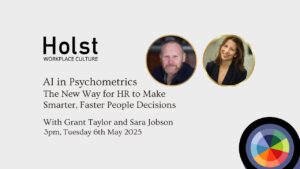The recent departure of senior advisors from Number 10 highlights the difficulties leaders have in managing conflict within their teams.

While Cummings and Cain have left in the glare of the media spotlight, most workplace conflict is altogether less high octane. Conflict in the workplace ranges from a stubborn refusal to collaborate to a boardroom bust-up. Managers and leaders have to be able to lead through the gamut of conflict, resolve issues amicably and also be prepared to take very difficult, painful decisions.
We can see this played out at Number 10 where Boris Johnson appears to have been forced to make a choice between advisors and family. The removal of Cain and Cummings, howsoever it happened, must have been one of his toughest personal/political decisions. Few leaders will be in such a visible position, but many face decisions where the conflict they must resolve includes colleagues who have become friends. This is where managing conflict with self-awareness and emotional regulation is essential for a successful outcome.
Strong leadership is key to managing conflict
Strong leadership isn’t about dictating or ranting. It’s about setting a tone which the whole organisation can confidently follow.
Conflict in the workplace is inevitable. It’s often quite necessary. It can uncover inefficiency, inadequacy and crucially, create better ways forward. Conflict isn’t the problem. It’s how we manage it in our teams before it becomes personal between individuals that is important.
Leaders must tackle conflict head on. Not with brutality, but with calm authority. This requires self-awareness and emotional regulation. Leaders can’t afford to be defensive if the conflict is aimed at them, especially if it appears to undermine their position. Instead, they must take a reflective stance and encourage a collaborative attitude to finding a solution.
However, that’s a tall order when the conflict involves big personalities who are highly driven and perhaps somewhat egotistical. These may be high performers who lack the awareness and regulation they need to be truly collaborative. These people could be the drivers, the revenue earners or decision makers that your organisation needs. You don’t want to lose them, but equally you can’t afford to let them drive away or grind down the rest of the team. It’s a balancing act, and one that leaders are frankly paid to perform. It may not be a desirable part of the job, but the role of a manager is just that – to manage. Not slink away & pretend it’s not happening.
Equip your leaders with awareness and regulation skills
This is why we need to equip our managers, from team lead to CEO, with the skills they need to successfully manage conflict. To put the emotional intelligence dimensions of awareness and emotional regulation at the forefront of your organisation’s professional development strategy.
These skills are game-changing in conflict resolution sessions. While conflict will often be loud and messy, it can be quiet and subversive. Having social awareness in their skill set will enable the leader to be observant and identify subtle mood changes in others. Sometimes, being aware of the things that are not said, can be the key to finding common ground.
While conflict will always be there, and the most driven types will always cause headaches, with greater awareness and regulation, your leaders will have a greater chance of resolving conflict before it goes too far and beyond reach. No one wants to lose their high performers, even if they present challenges to those around them. The trick is to manage them without the rest of the team feeling unfairly treated.
Use flowprofiler® and McQuaig to develop a healthy workplace culture
Develop emotional intelligence, resilience, motivation and with flowprofiler® to help your people manage pressure and form strong team relationships at work. With a keen focus on positive psychology, flowprofiler® uniquely measures resilience, motivation and emotional intelligence across two states: day-to-day and under pressure. The result is rich diagnostic information, easy to understand feedback and meaningful professional development.
Understand how your people are behaving differently and what you can do to support them with McQuaig. The McQuaig tools measure the traits needed for success in any role. It looks at how a person prefers to behave naturally and compares this with how a person is behaving in their current job. The analysis between the two shows any adjustments the individual is making and whether they are showing signs of high or low morale.
Contact us
Get in touch to find out how flowprofiler® and McQuaig could be the game-changer your organisation needs to thrive through and beyond the current crisis.
flowprofiler® and associated marks are registered trademarks of Chalmers International Limited | All rights reserved
eqflow® and associated marks are registered trademarks of Chalmers International Limited | All rights reserved
resilienceflow® and associated marks are registered trademarks of Chalmers International Limited | All rights reserved
motivationflow® and associated marks are registered trademarks of Chalmers International Limited | All rights reserved





